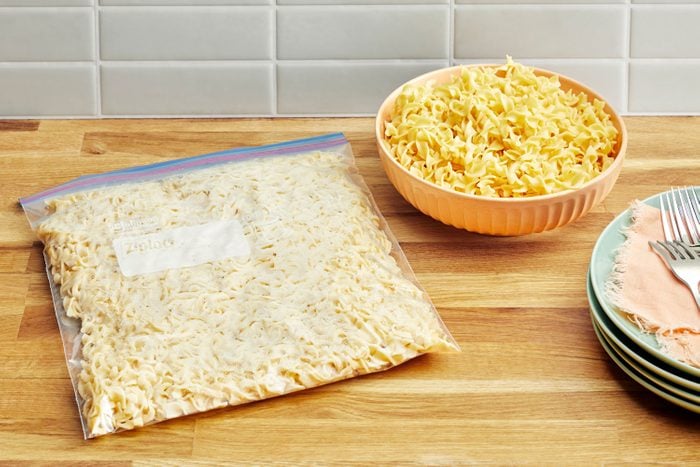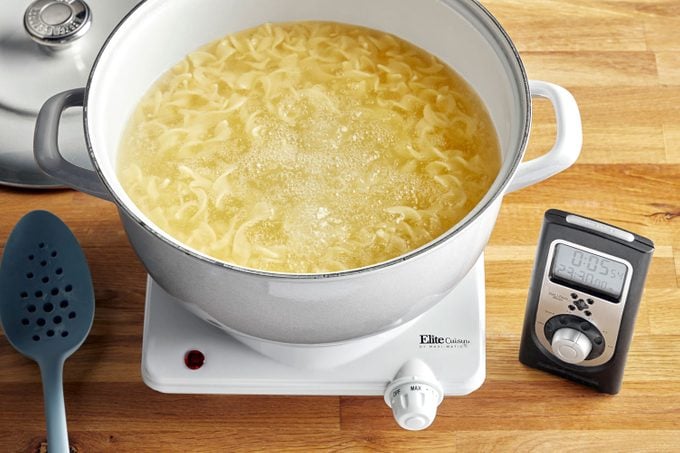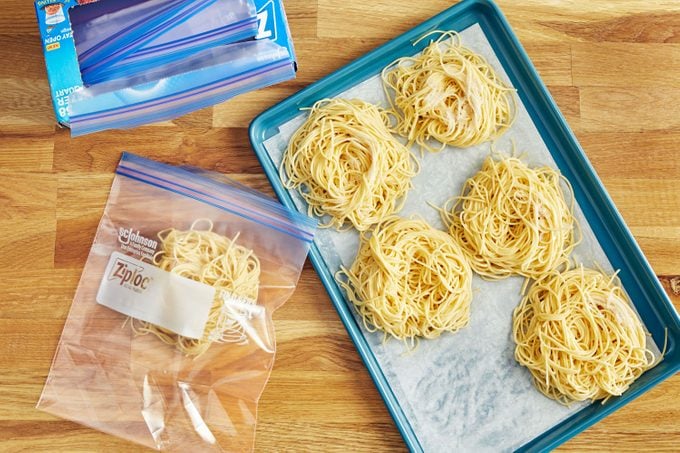How to Freeze Cooked Pasta
Updated: Apr. 04, 2024

So you made a ton of spaghetti and need to store it: Can you freeze cooked pasta?
Let’s say you have leftover pasta after a spaghetti dinner. To be fair, when you’re making fork-twirling good spaghetti recipes, you want to make enough to have mountains of leftovers for the week. And you definitely don’t want to toss them away—but can you freeze cooked pasta?
Yes! You can keep cooked pasta in the freezer for last-minute suppers. Here’s what to do.
Best Pastas to Freeze
Stuffed pastas like ravioli and baked pastas like lasagnas are the best options for freezing. This is because they’re already assembled and can be cooked from frozen—easy peasy! But you don’t just have to save stuffed and layered dishes for freezing. Small, sturdy pasta shapes like cavatappi, penne and rigatoni hold up really well to freezing and thawing too.
As for thinner, longer noodles like angel hair or fettuccine, you can freeze them, but they need a bit more care when transferring to the freezer. To prevent long noodles from drying out or breaking, toss them with olive oil after cooking, then allow them to cool. Using a fork or small tongs, twirl portions into little nests and place the nests on a baking sheet. Freeze the nests, covered, for an hour or so and then transfer the nests to freezer-safe containers or resealable plastic bags.
How to Freeze Pasta
Freezing food is relatively simple. You can freeze just about any cooked pasta, but how you cook the noodles can make a big difference when you’re ready to thaw. (There’s really no need to freeze uncooked pasta, because it typically has a shelf life of one to two years. It likely won’t grow any mold or bacteria in your pantry.)
Step 1: Cook your pasta al dente

Aim to cook your pasta al dente. If the noodles are too soft or mushy, they might not survive reheating. We recommend adding a little bit of olive oil to your long noodles while they’re hot, so they don’t clump together.
Editor’s Tip: Freeze pasta separate from pasta sauces. This will help maintain the texture of both the noodles and the sauce.
Step 2: Transfer to freezer

Let the pasta cool completely before placing into freezer-safe bags or containers. You can also place cooked pasta in a single layer on a baking sheet, freeze and then transfer to a reusable container.
How long does frozen pasta last?
Frozen noodles on their own generally stay fresh for two months, though they will last up to three months if needed. A lasagna recipe or other baked or stuffed pasta dish will generally last up to three months.
How to Thaw and Reheat Pasta
When you’re ready to defrost the pasta, transfer it to the fridge to thaw. (You can cook baked pastas from frozen.)
Then, dump the pasta into boiling water (or pop it in the microwave) to reheat. You can also add the pasta to a brothy soup (Here’s how to freeze soup!) or a slow-cooker dish when it’s nearly done cooking. You want to make sure the pasta is heated through but not mushy—it doesn’t take long!
Getting into meal prepping? Here are other foods you didn’t know you could freeze.
